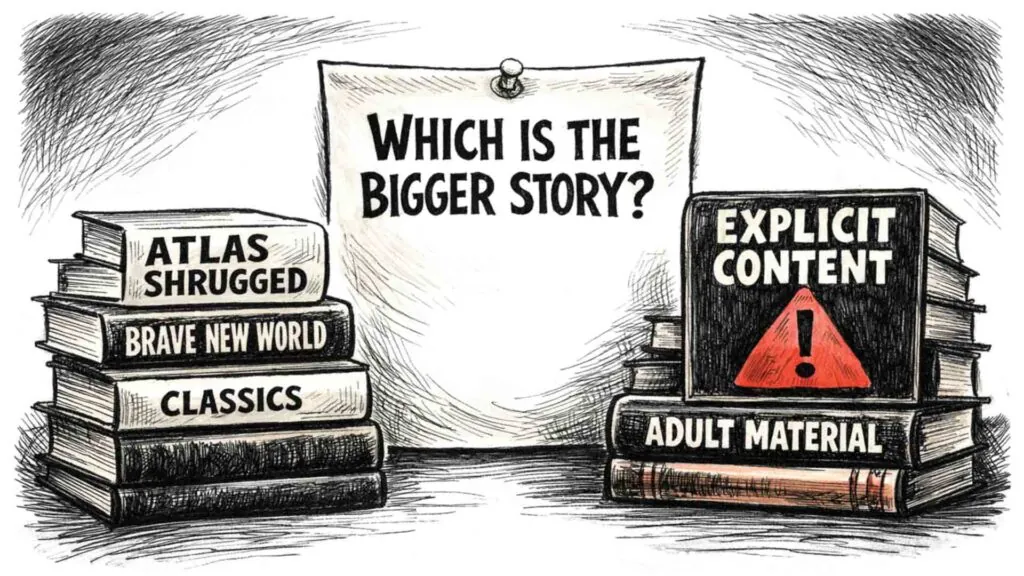Part of God’s equipping us to courage also involves rightly understanding what real courage is
*****
Fear.
We all feel it at times. We might be facing a job interview or something even more serious like a disease, or the loss of a loved one. We wonder, What’s going to happen? Even though we trust in God’s sovereignty, our weak selves cannot help but flail about at times.
So what’s the answer to such fear?
Courage, of course. But not simply the sort that depends on the steadiness of our own resolve. God calls us to a different sort of courage, and He equips us to it too.
Part of that equipping is the communion of saints He gives us. I find it intriguing that the word “encouragement” is, well, full of courage. To encourage is, as the dictionary puts it, “to inspire with courage, spirit, or confidence: to stimulate by assistance, approval, etc.” Our words and deeds can aid others to feel courageous and tackle or re-tackle whatever situation was frightening them.
We’ve all experienced it – a person comes along at the right time, and offers the right words to turn discouragement into hope. Or your support may have come from a sermon, a book, a family member, or a brother or sister in Christ. From feeling downcast (the word that Psalms uses), you began to see your way forward. We all need courage, which means we all need the encouragement of others.
Specific attributes of courage
Part of God’s equipping us to courage also involves rightly understanding what real courage is.
We all admire the person who’ll run into a burning building or jump into a river to save someone’s life. This takes courage, for certain. As the actor John Wayne once said, “Courage is being scared to death but saddling up anyway.” That is so true. But as we look at our daily lives, we can find many less dramatic but important ways that this virtue should also be applied.
Before we look at a few specific ways we may need to “saddle up,” let’s delve into a few more specific attributes of courage. In a recent presentation at my church entitled “You’re Gonna Need That Spine,” Dr. Joe Rigney gave the following in-depth definition of courage:
“Courage is a habitual, sober-minded self-possession that overcomes fear through the power of a deeper desire for a greater good.”
Along those lines, Rigney exhorted us to consider the following summarization of its attributes:
- Courage involves double vision. You not only see the danger out there that’s frightening you, at the same time you can also foresee the good that would come in overcoming your fear. For example, a child is drowning and though you are afraid of the cold water and waves, you know that your swimming ability may save the child’s life. Or perhaps you are afraid of presenting yourself poorly at a job interview, but you go because you foresee the good that will come if you are hired.
- Courage is a habit. You don’t just wake up one morning and have courage – to have it, you need to cultivate and grow into it. This will involve facing difficult situations repeatedly, and successfully overcoming them. For example, public speaking is a common fear. But if you go ahead with your speech even as your knees and hands are shaking, then repeating the experience will build courage. Living through a difficult situation teaches you that God has given you these abilities, and assures you that you’ll be able to manage future such situations, through God’s strength.
- Courage manifests in risk-taking and fortitude. There is a daring or risk-taking that is about seeing the good we don’t yet have – the girl you’d like to ask out, or the job you’d love to have – and being willing to risk danger, despite the fear we feel. This the courage that’s needed to take a hill in battle. Then there is the kind of courage involved in keeping that same hill when the counterattack comes. This fortitude or endurance is about holding onto the good that we already have. It resists the impulse to flee or retreat in the face of hardship and difficulty and pain. This is the courage that has us fight for our marriages, even if the going gets tough. Instead of giving up, we courageously address the problems.
- Recklessness is the opposite of courage. We understand that cowardice is the flipside of courage – cowardice shrinks back from danger, gives in to fear, and retreats in the face of pain, difficulty, or death. But courage is also the opposite of recklessness, which it is sometimes confused with. Reckless is more akin to crazy – thoughtlessly punching the gas pedal on an icy curve. Courage is always guided by reason, wisdom, and what is true. Courage recognizes the difference between necessary and unnecessary risks – some risks are not worth taking, so the reason you’d take a risk matters.
Everyone needs a spine
Just as Esther in the Old Testament was told, we have been placed in this world now, “for such a time as this.” We live in an unrighteous culture, where Christians are attacked as narrow-minded or haters when we dare to speak God’s truth. We need to hear again the words of Joshua 1:9, where God encouraged Joshua:
“Have I not commanded you? Be strong and courageous. Do not be frightened, and do not be dismayed, for the Lord your God is with you wherever you go.”
As Rigney said,
“[God] is the source of our strength. There’s a reason. He is both the good that you cling to and the power that enables you to cling to it. He enables us to hold on when we want to let go.”
In an article from the C.S. Lewis Institute on courage, Arthur W. Lindsley says:
“How can we be free from this fear and have the courage to live for the truth in our times? Jesus says, ‘If you continue in my word, you are truly my disciples; and you will know the truth and the truth will set you free’ (John 8:32). Jesus exhorts us to continue obeying His word as the path to knowing the truth (in an experiential way) and to freedom. This is especially true with fear, anxiety, and worry.”
Lindsley goes on to say, “Courage is not the absence of fear but acting despite it.” It is also important to note, as Rigney stated, that “Courage is a human trait, not a masculine one. It is required of everyone.” How many ways do we often give in to fear, anxiety, or worry instead of courageously trusting God to take care of us?
If there is an illness that must be remedied by a difficult and frightening procedure, we must step forward in courage. If we are in need of a new job or home, we need courage to take the necessary steps to find one. If we are supposed to provide for a family, it may take courage to go day by day to a job that we really don’t love. If we have a rift between us and a brother or sister in the Lord (or anyone, really), we may feel fear about addressing the situation. But Christ says that we must (Matt. 5:24; 18:15), and so we need courage to do so, even within our own households.
If a woman finds it a scary thought, to follow a fallible man in her marriage, she needs courage. 1 Peter 3 describes a submissive attitude and action and a gentle and quiet spirit, and he ends that section by saying that we can take inspiration from “holy women of the past who put their hope in God” – we can be like Sarah “if you do good and do not fear anything that is frightening.” Rigney states that “Courage is about what happens when things get hard.” He encourages us to face hard situations by Christ’s strength without grumbling and self-pity.
“It’s such hope that firmly believes that hardships, trials, and dangers are instruments in the hands of a good God for our good. This subdues the passion of fear and the anxiety that rides up – What’s going to happen? I can’t control the future, what about the kids? One of the key traits of the Proverbs 31 woman is that she laughs at the time to come. She looks at the future with all the possibilities, including the horrific ones, and she says ‘bring it on.’ Sarah is a model of the sober-minded hopeful obedience and submission to her husband. Because of her hope in God, she conquered her fears, maintained that gentle spirit in submission first to God and then to Abram.”
Imagine the absolute trust in God that made David step forward and challenge Goliath. Imagine the courage that enabled Jael to invite her enemy into her tent and conquer him. We may never be in that sort of danger. But we need courage to face the fears that we encounter in our daily lives. As this quotation from Mary Anne Radmacher suggests, “Courage doesn’t always roar. Sometimes courage is the little voice at the end of the day that says, ‘I’ll try again tomorrow.’” We all have fears that need tackling, and we all need to do what we can to inspire courage in others.
Conclusion
How wonderful that God has established a community life for us in our churches where we are told to stir up one another to good works (Heb. 10:24), to have the older ones teach the younger ones from their experience (Titus 2), and to show compassion and love one another in every way (John 13:34-35). After we have stepped forward courageously, we are in a position to help someone else to do the same.
Whom might you encourage today?
Sharon L. Bratcher has just published her new book “Life and Breath and Everything” containing over 50 articles that were published in the past 15 years. You can find her book on Amazon.com or Amazon.ca.












